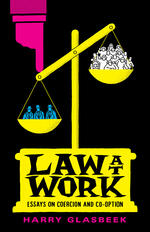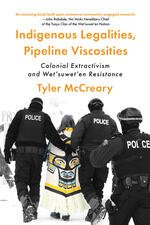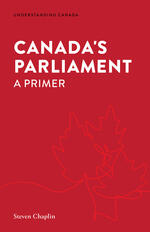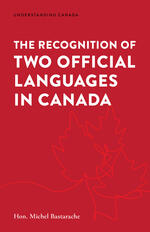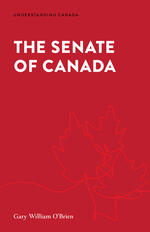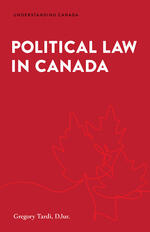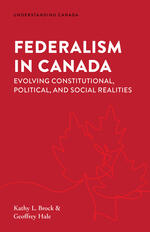Droit
The Art of Focused Conversation, Second Edition
The essential, bestselling guide to designing and leading useful and effective group conversations, now completely revised and updated.
The Art of Focused Conversation is the quintessential theoretical ...
The Life and Death of Freedom of Expression
In The Life and Death of Freedom of Expression, Richard Moon argues that freedom of expression is valuable because human agency and identity emerge in discourse – in the joint activity of creating meaning. ...
Law at Work
In a series of illuminating essays, the renowned Harry Glasbeek unpacks how law has been used to ensure that workers' aspirations are kept in check. Law at Work uncovers how the legal system, through its ...
Indigenous Legalities, Pipeline Viscosities
Indigenous Legalities, Pipeline Viscosities examines the relationship between the Wet’suwet’en and hydrocarbon pipeline development, showing how colonial governments and corporations seek to control ...
Canada's Parliament
Édité par Gregory Tardi
Catégories: Pouvoirs exécutifs
Séries: Understanding Canada
Parliament is at the centre of the Canadian system of democratic government and law-making. This primer traces the roots of Canada’s Parliament in the United Kingdom and shows how it has developed a ...
The Recognition of Two Official Languages in Canada
Édité par Gregory Tardi
Catégories: Constitution
Séries: Understanding Canada
Official bilingualism comprises Canadians’ ability to deal with their own state authorities, and in matters of public life, in the official language of their choice. In The Recognition of Two Official ...
The Senate of Canada
Édité par Gregory Tardi
Catégories: Pouvoirs exécutifs
Séries: Understanding Canada
The upper house of the Parliament of Canada plays a vital role in the political life of the country. The Senate reads, indeed on occasion amends, legislation enacted by the House of Commons. It originates ...
Political Law in Canada
Avant-propos de Patrick J. Monahan
Catégories: Pouvoirs exécutifs
Séries: Understanding Canada
Democracy implies the primacy of law over discretion and power. Several disciplines, in particular constitutional law and political science, offer traditional analyses of this reality. Political law is ...
Federalism in Canada
Édité par Gregory Tardi
Catégories: Pouvoirs exécutifs
Séries: Understanding Canada
What does the concept of “federalism” mean and how does a federation differ from a unitary state? Professors Brock and Hale focus specifically on Canada as an example of a federal state and explain ...
In Defence of Copyright
“This book is filled with important information and excellent insights. … You should buy it … please don’t illegally download it.” — John Degen, The British Columbia Review
Copyright is one ...


